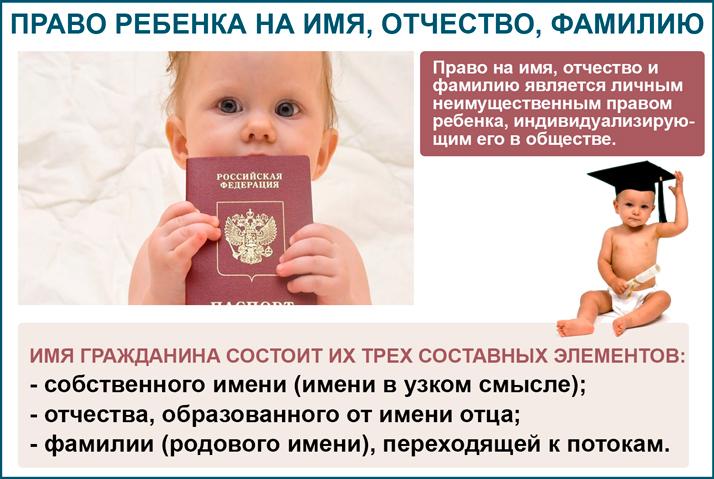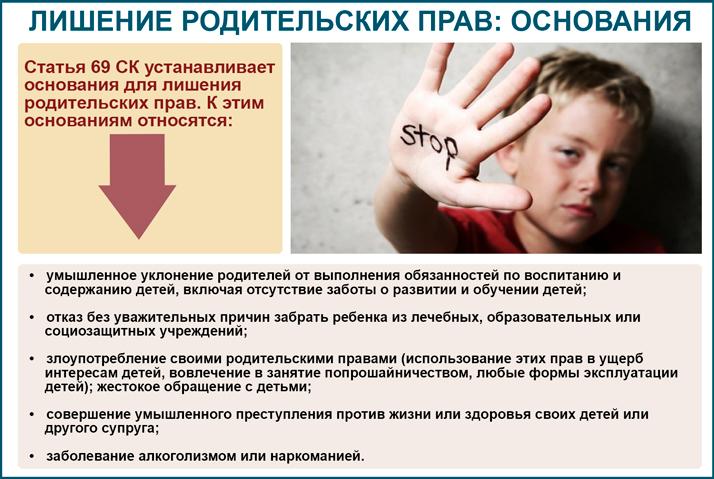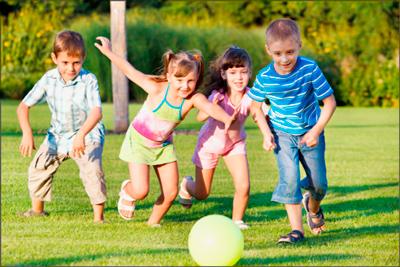Constitutional rights of the child in the Russian Federation
The legislation of the Russian Federation gives minors a certain list of rights. Although the child is not even aware of their presence, but only uses the actual provision, specialized bodies monitor their observance. The list of children's interests is quite large, but it is worth briefly considering the content and main provisions of the legislative framework in this matter.
Persons under the age of eighteen are considered to be minors. The rights of minors are divided into civil, social and economic.
The civil rights of the child are enshrined in the Constitution of the Russian Federation. Their action begins from the moment of birth. Even the judiciary is prohibited from violating and limiting them.
The economic rights of children are radically different from those of adult citizens. The child has the right to be the owner of any property not prohibited for circulation by the legislation of the Russian Federation. However, he cannot dispose of it until the age of 14, and upon reaching the specified age - only with the consent of legal representatives.
Minors have social rights. Among them is the opportunity to receive free medical care and education.
Children have the right to name and surname. and citizenship
The Constitution also enshrines the possibility of a minor to have a name, patronymic, surname and citizenship. This is one of the basic human rights.
FULL NAME. the child is assigned by mom and dad. In the presence of two parents, the decision is made according to their common opinion. The name is chosen arbitrarily, except for symbols containing characters (except hyphens) or numbers. The patronymic is assigned by the name of the father. The child can be given the surname of dad, mom, or combine them together by writing a hyphen.
Important! In the absence of parents, full name the specialists of the district department of guardianship at the place of detection of the minor, or employees of the organization in which the child is placed, are arbitrarily chosen.

To acquire citizenship, it is enough for a baby to be born on the territory of the Russian Federation. This fact is confirmed in the document on registration at the place of residence.
The right to family education with natural parents, education and development
Family education of minors is considered a priority. In this case, the best option would be your own mom and dad. If they have died or do not want to take care of their child, it is necessary to take all possible measures to keep it with blood relatives (grandmother, grandfather, aunt, uncle, brothers, sisters).
If this option is not possible, the specialists of the regional department of guardianship should take measures to place the minor in a family of citizens of the Russian Federation, in extreme cases - in a family of foreign citizens. For the period of absence of persons wishing to take a child for upbringing, he is placed in a specialized organization.
Mom and dad, guardians or the head of the orphanage must take measures to ensure that minors receive basic education, ensure its development and upbringing in accordance with age. The limitation of these rights is the basis for bringing the perpetrators to justice.
A minor has the right to legal protection
The duty to protect the rights of minor children rests with the mother and father. At the same time, the separation of parents is not a basis for exemption from this function.
Children cannot exercise their rights on their own, so this must be done by legal representatives. In the absence of parents, this function is transferred to the municipal guardianship department. Specialists are obliged to select a foster family as soon as possible.
If the rights of a minor have already been violated, their restoration is entrusted to specialized bodies. At the same time, it is of great importance to ensure the personal safety of the minor.
Protection from criminal actions of legal representatives
Danger from loved ones is one of the most common problems with. Such crimes are often hidden from prying eyes.

The most common abuses are considered abuse, exploitation of labor and waste of property. Violators are subject to administrative and criminal liability, depending on the severity of the crime.
In the event of an offense against the personality of a minor, the child is subject to transfer to the custody of the guardianship authority until the court decides to return him to the family, or deprivation of parental rights. The applicant in such claims can be a prosecutor, a second parent or a guardianship authority.
Own opinion
The law provides for the need to find out and take into account the opinion of a child upon reaching 10 years of age. In exceptional cases and with the consent of the parents (guardians), young children may be interviewed. The main criterion for this is conscientiousness.
The law establishes a list of issues on which the opinion of the child is ascertained. The possibility of exercising this right exists only in situations that directly concern a minor. Among them:
- changing the personal data of a minor;
- family selection or;
- deprivation / restriction of the rights of mom and dad.
The survey is carried out directly in the courtroom with the participation of a specialist from the department of guardianship and a social educator. The presence of a legal representative is allowed only if he does not put pressure on the minor.
The right to freedom of assembly, association, conscience, thought and religion
The ability of a minor to independently form his convictions and thus create his views on life is enshrined in the Constitution as freedom of conscience. This right protects the child as a person.
Every citizen, regardless of age, is free to decide which religion to choose. At the same time, belonging to a particular religion is not an obligation. A person may not support any world religion (atheism).
A minor can freely express his thoughts: in writing, orally, in the form of paintings or other objects of creativity. This rule also works in the opposite direction - everyone can read, listen, review works of art and make their own opinion about it.
Children can participate in and conduct any kind of peaceful assembly that does not threaten other populations. The authorities should not interfere and obstruct such gatherings.
Minors have the right to participate in associations. An important point is the voluntariness of joining. One of the options for realizing this opportunity will be participation in trade unions.
Secrecy of correspondence, telephone conversations, personal data
In case of encroachment on personal correspondence and telephone conversations, the offender is liable in accordance with applicable law. Access to this information is possible only by a court decision.
 The protection of personal information about children is provided for by the Federal Law on personal data. They include first name, patronymic, last name, date of birth, details of identity documents.
The protection of personal information about children is provided for by the Federal Law on personal data. They include first name, patronymic, last name, date of birth, details of identity documents.
Freedom of personal, family life is enshrined in the Constitution. Intervention by outsiders is possible if a crime has been committed against the child.
The home of every citizen is inviolable. Violation of this right is allowed only with the consent of the child himself or by a court decision.
The minor has the right to free access to information
The child can access any information that is appropriate for his age. The main purpose of this is the formation of morality, morality and correct habits.
For example, a healthy lifestyle. Information that is harmful to the psychological state of a minor is subject to restrictions: scenes of violence and cruel treatment, terrorist and extremist texts, photos and videos containing nudity, drinking alcohol, using tobacco and drugs.
Establishing "parental control" on a computer by legal representatives does not violate this right. In addition, it is advisable to regulate the time spent on social networks.
A minor deprived of a blood family has the right to state assistance
Orphans and children, whose parents have abandoned their upbringing, are transferred to the care of the guardianship authority. The main goal of social services professionals is to find the right candidate for a particular child.
The substitute parent is endowed with all the rights and responsibilities of the blood family. In the absence of a suitable citizen during this period, the minor is transferred temporarily to the organization providing education.
The municipal guardianship department exercises additional control over the families of adoptive parents and guardians. The state of health of the child is subject to annual monitoring with the help of clinical examination of orphans. The disposal of the ward's property and its safety shall be reflected in the custodian's report.
Material security
Mom and Dad must provide the child with a full standard of living. This takes into account the financial capabilities of the parents.
However, the availability of basic necessities (food, seasonal clothing, shoes, school supplies) is mandatory.
If the parents refuse to provide their children on their own, the material resources must be recovered in court by the legal representative. The money is transferred to the guardian's account for spending on the needs of the minor.
Deprivation of rights is not a basis for terminating the material support of children. In such a situation, the state additionally takes part: guardians receive an allowance for the maintenance of wards.
Medical care and priority in the provision of medical services
 Health protection of growing citizens is one of the main goals of the state. The child has the opportunity to use the most advanced technologies and receive modern medical services.
Health protection of growing citizens is one of the main goals of the state. The child has the opportunity to use the most advanced technologies and receive modern medical services.
Medical care for children should be provided free of charge. Each minor is assigned to a state or municipal polyclinic on a territorial basis, whose specialists provide him with free assistance.
In addition to direct treatment of diseases, children have the right to rehabilitation and disease prevention. For example, spa treatment, relaxation and health improvement.
A minor is eligible for education
Every child has the right to receive free basic general education (9 classes), secondary vocational or technical, as well as higher when passing the necessary tests. Responsibility for the execution of this / other legal representatives.
Officials of an educational organization that refused to accept a child to study, if there are places in the class, are subject to liability in accordance with the law. Charging funds for enrollment is prohibited.
Children should be educated in accordance with their health condition. If there is a conclusion of the psychological, medical and pedagogical commission, a transition to home education is possible.
The right to rest, art and creativity
The child should be provided with cultural recreation in accordance with age. If parents do not have funds to buy a voucher to a children's camp, such an opportunity is provided free of charge by social authorities at the request of a legal representative.
 Art classes are provided in district organizations, for example, art houses. Training is provided free of charge. Children are admitted until the designated places are filled.
Art classes are provided in district organizations, for example, art houses. Training is provided free of charge. Children are admitted until the designated places are filled.
Minors can attend cultural events: museums, exhibitions.
The main condition is the compliance of the child's age with the declared program.
Providing protection from labor exploitation
The Labor Code of the Russian Federation contains the rights and obligations of minors. In accordance with it, the child can carry out activities under the contract upon reaching the age of 14, with the consent of the legal representative and the municipal department of guardianship.
Children can be attracted to light work in their free time from school. It is prohibited for minors to work with a break from training or in hazardous work. The employer is liable in accordance with the law.
Sale of children's products is possible with the consent of the child and legal representative. Funds from their sale must go to his personal account.
Property powers
A child can be the owner of any property not prohibited for circulation by the legislation of the Russian Federation. However, he has no right to dispose of it on his own.
Children can have bank deposits, securities and receive income from them. Legal representatives are not allowed to withdraw money deposited into the personal accounts of minors.
Disposal of your property is possible from adolescence (14 years), with the prior consent of mom and dad. The property of minors (0-13 years old) can be sold, rented or used by legal representatives.
The rights and obligations of the child are enshrined in legislation. Compliance with them is mandatory for all citizens of the Russian Federation. In case of violation of children's interests, the perpetrators are subject to prosecution. Unlawful acts against minors have the status of serious crimes.
